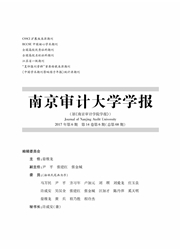

 中文摘要:
中文摘要:
通过构建中央政府、地方政府、农民工三个主体三阶段的完全信息动态博弈模型,对农民工市民化进程中的政府行为与个人行为进行博弈分析,发现不同地区不同时期的博弈均衡解是不同的,博弈均衡(阻碍,阻碍,不成为市民)在我国长期占主导地位,从而导致了农民工市民化进程缓慢.农民工市民化发展缓慢的直接原因是中央政府、地方政府和农民工三个主体利益的不一致,根本原因却是财政分权背景下中央政府与地方政府的财权和事权的严重不对等以及中央政府对地方政府以GDP 为核心的政绩考核方式.
 英文摘要:
英文摘要:
Based on the construction of a complete information-dynamic game model with the central government,local govern-ment and migrant workers as three main bodies in three phases,this paper makes a game analysis on government and the indi-vidual behavior in the process of the urbanization of rural migrant workers. It is found that in different areas the equilibrium so-lution is different in different periods,the game equilibrium (block,block,do not become citizens)plays a dominant role for a long time in our country,which leads to the slow process of urbanization of rural migrant workers. The direct cause of slow urbanization of migrant workers is that the central government,local government and the interests of the subject of migrant workers do not match in terms of interests,the root cause is the unequality in central and local financial powers and responsi-bilities under the background of the fiscal decentralization to local governments as well as the GDP-cored performance assess-ment methods central government enforced on local government.
 同期刊论文项目
同期刊论文项目
 同项目期刊论文
同项目期刊论文
 期刊信息
期刊信息
